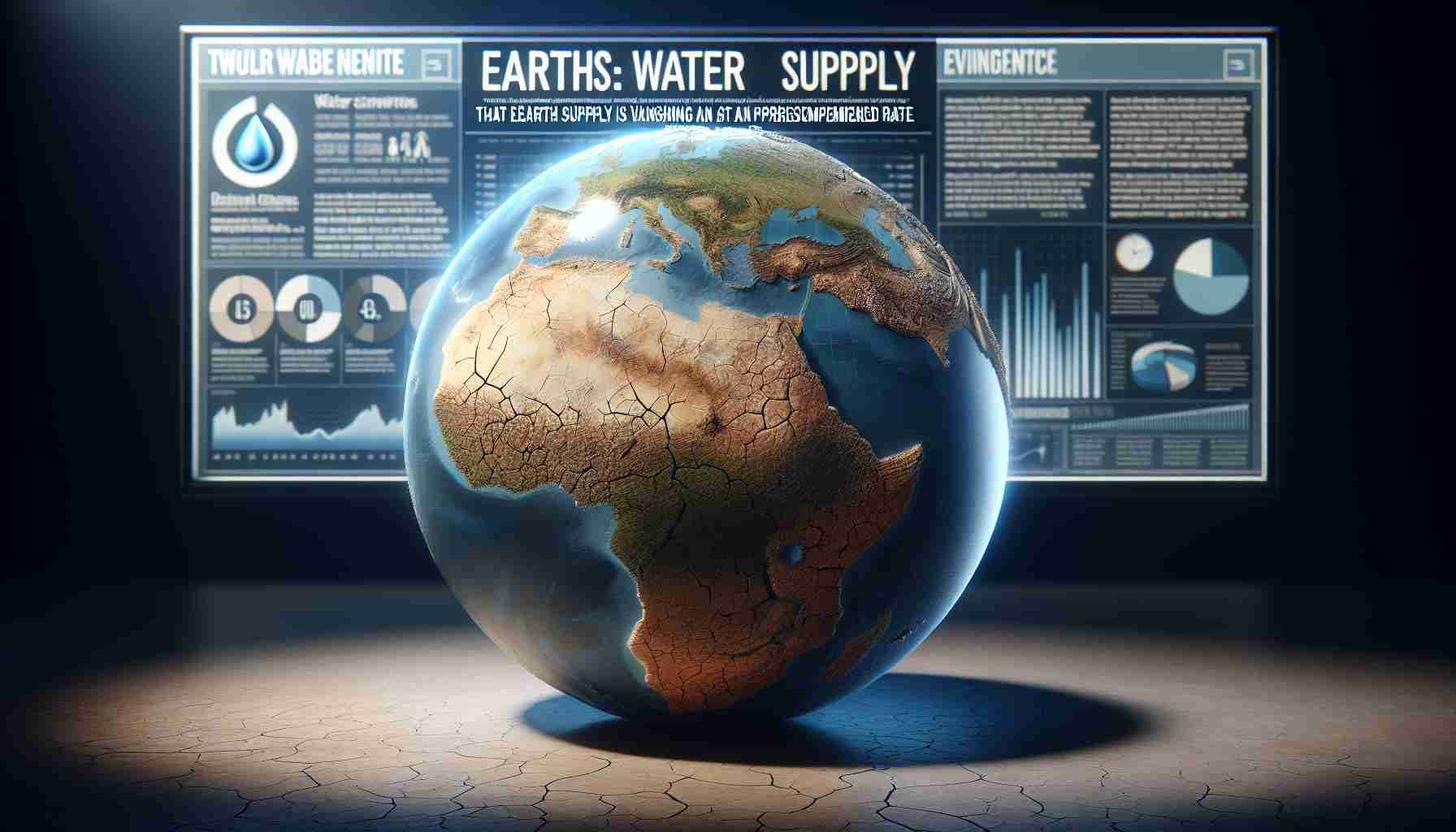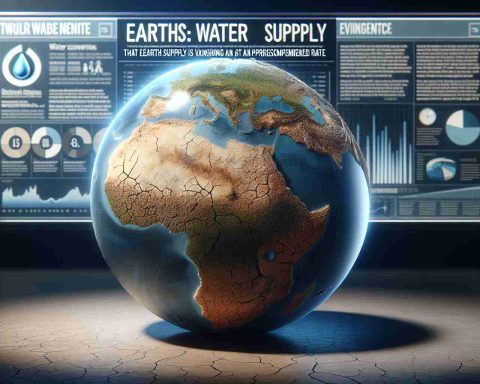Unprecedented Water Crisis Unfolding
A startling revelation has emerged from recent data analysis, indicating a swift and continuous decline in Earth’s freshwater reservoirs since May 2014. This unsettling trend, as uncovered by a team of international researchers, suggests a potential shift towards a significantly drier era for our planet.
Alarming Stats Unveiled
In a drastic turn of events, satellite observations from 2015 to 2023 showcased a striking 290 cubic miles drop in total freshwater supply compared to the previous average spanning 2002 to 2014. To put this into perspective, the lost volume is equivalent to the disappearance of Lake Erie two and a half times over.
Impending Consequences and Ongoing Debates
The implications of dwindling freshwater reserves are dire, with looming threats of water scarcity triggering repercussions such as heightened famine, conflicts, poverty, and disease. While suspicions hover around the potential influence of climate change on this alarming phenomenon, scientists remain locked in debate over the precise correlations and uncertainties surrounding the intricate climate models and measurements involved.
Unveiling the Mysteries of Earth’s Vanishing Water
As researchers delve deeper into the mysteries behind this catastrophic water loss, questions loom large over the prospects of restoration to pre-2015 levels or the harrowing continuation of this downward spiral. With the specter of global warming casting a foreboding shadow over these developments, the urgency to address and understand this crisis grows exponentially.
Uncovering Additional Insights into Earth’s Vanishing Water Supply
Recent studies have brought to light lesser-known details surrounding the alarming decline of Earth’s water reservoirs. One crucial aspect that has come to attention is the role of unsustainable water management practices adopted by various industries and regions, exacerbating the rate at which freshwater sources are depleting. This sheds light on the pressing need for more stringent regulations and conservation efforts to mitigate the rapid loss of this vital resource.
The Influence of Population Growth and Urbanization
An often overlooked factor contributing to the unprecedented rate of water loss is the exponential growth of the global population and rapid urbanization in many parts of the world. As more people flock to cities and demand for water-intensive activities such as agriculture and manufacturing increases, the strain on existing water supplies intensifies. This poses a fundamental question on how sustainable development can be achieved without further depleting Earth’s dwindling water resources.
Exploring Technological Solutions and Innovations
In the face of this looming crisis, researchers and innovators are actively exploring technological solutions to address the challenges associated with water scarcity. From advanced water purification techniques to the development of smart water management systems, there is a growing emphasis on leveraging technology to optimize water usage and enhance conservation efforts. However, the implementation of these solutions on a global scale poses a significant challenge due to varying infrastructure capabilities and resource constraints across different regions.
Key Questions and Challenges
One of the most critical questions that arise from the alarming rate of Earth’s water supply depletion is whether current conservation efforts are sufficient to reverse the trend or if more drastic measures are needed to safeguard this vital resource for future generations. Additionally, the complex interplay between climate change, human activities, and natural variability in water cycles poses a challenge in accurately predicting the long-term consequences of ongoing water loss and formulating effective mitigation strategies.
Advantages and Disadvantages of Conservation Initiatives
While conservation initiatives play a crucial role in raising awareness and promoting sustainable water usage practices, they also face drawbacks such as limited funding, lack of widespread adoption, and regulatory barriers. On the positive side, successful conservation programs can lead to significant reductions in water waste, preservation of ecosystems dependent on freshwater sources, and long-term resilience against water scarcity-induced crises.
Exploring Solutions and Collaborative Efforts
Addressing the global water crisis requires a multipronged approach encompassing policy interventions, community engagement, technological innovations, and proactive conservation measures. By fostering collaboration between governments, NGOs, private sector entities, and the public, there is a potential to enact meaningful change and safeguard Earth’s precious water resources for generations to come.
For more information on global water conservation initiatives and innovative solutions, visit World Wildlife Fund.













